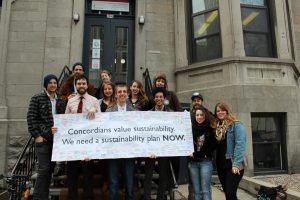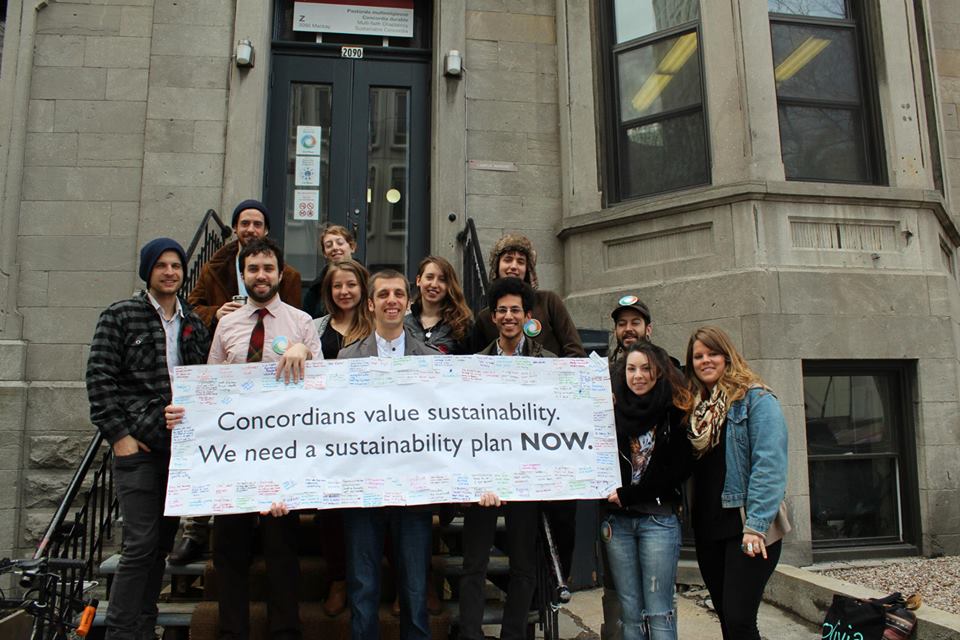
According to external coordinator at Sustainable Concordia, Gabriela Polanco, our university is doing its part. Big time.
“We are dedicated at Concordia to push ourselves, to reduce food waste, and to raise awareness about food sustainability,” says Polanco. Having completed a BA in spanish literature combined with a minor in sustainability and diversity, Polanco is currently finishing her master’s degree at the University of Ottawa.
Since the University of Ottawa demonstrates a fair amount of skepticism about the people’s behaviour toward the planet, Polanco kept her foot in the door by joining Sustainable Concordia, which she describes as “full of energy.”
“Sustainable Concordia has been rather misunderstood by some people – is it a club or an organization? It’s both,” Polanco points out. “Although we are a student-driven organization, we have faculty members involved. We partner up with organizations like Food Coalition, Climate Justice, the John Molson Sustainability Group. We include as many voices as we can.” Although Sustainability Concordia was kick-started by students concerned about recycling (or, rather, the lack thereof), now the organization is open to all kinds of possibilities related to sustainability.
“Sustainability is so broad,” says Polanco. “We address a myriad of issues.”
The Montreal Community Security map, a project sparked by Sustainability Concordia, was brought forth in order to face the issue of clean eating and environmentalism.
“That is a very cool project,” Polanco explains. “We created a map of places nearby where students can go, places like farms, cafés or restaurants, where local and organic food is promoted. As such, we give power to people who feel that taking care of the environment is important. The map is currently at its preliminary stage but we are developing it. Students can also add places to the map,” she says.
On the organization’s agenda this year is changing the governmental structure at Concordia.
“Sustainability issues have been student-driven,” says Polanco. “That needs to change. We are discussing with the higher levels of administration so that they are also involved in the meetings we are having. We have three priorities this semester: coming up with a policy for the long-term, climate change, and food-related issues.”
Among all, Sustainable Concordia’s main focus is on food security and management.
“We want to reduce waste, make sure that we use plastic that is recyclable, and we are negotiating with Chartwells, which is a large food company that feeds our students.”
Polanco highlights that Chartwells needs to change its habits when it comes to food quality, proposing alternatives for students.
“Ultimately, we want to cooperate with Chartwells, but so far we have set up the Hive café above the library and we are promoting local food and when I say local food, I mean within walking distance.”
“No one is imposing a lifestyle here,” says Polanco. “We are simply encouraging students to go to city farms, go to workshops we give on growing plants and vegetables, that kind of thing. We set up a greenhouse which became a huge project, for instance.”
Polanco believes leading a responsible, food-sustainable lifestyle is not a radical step that will zap your wallet. “Eating local and organic food does not have to be expensive,” says Polanco, “We want to demystify that notion. It is not a radical change.”
With World Food Day quickly approaching on Oct. 16., the question remains: what will you be eating?




